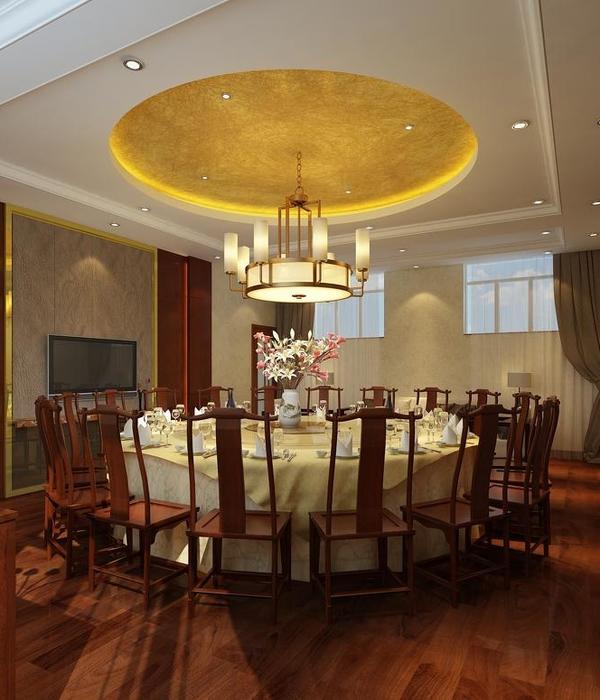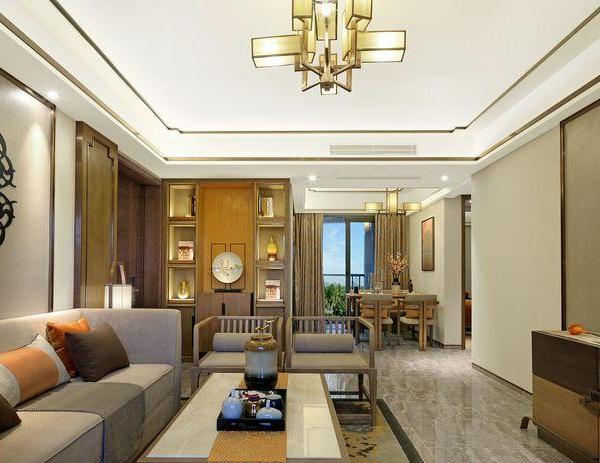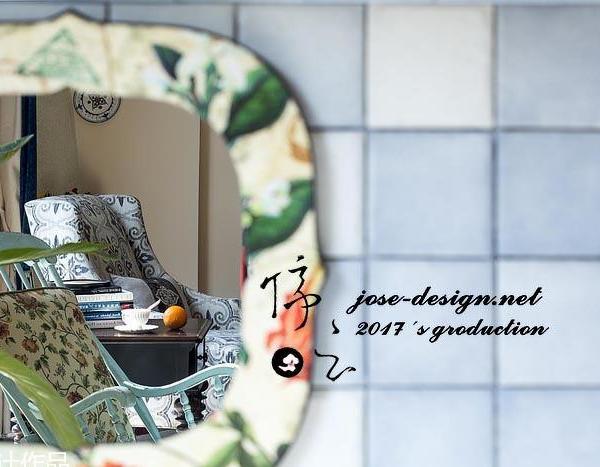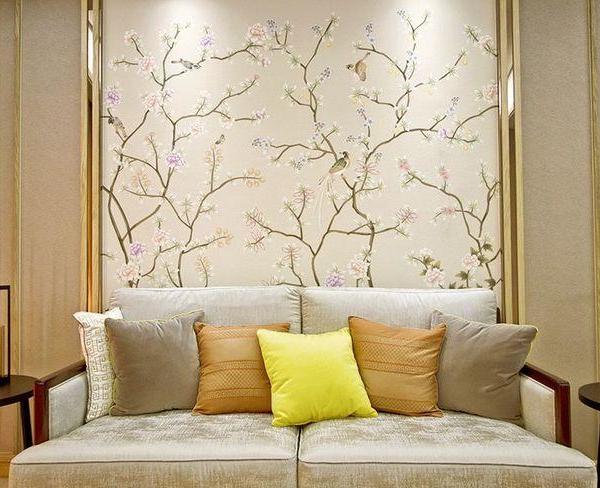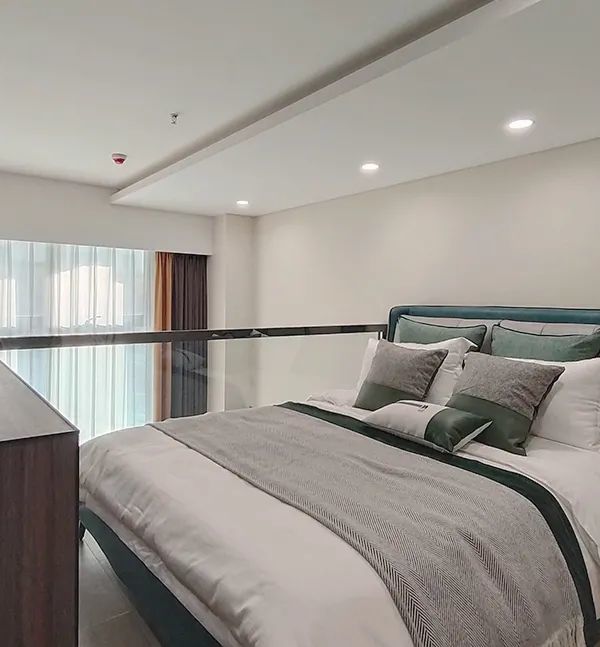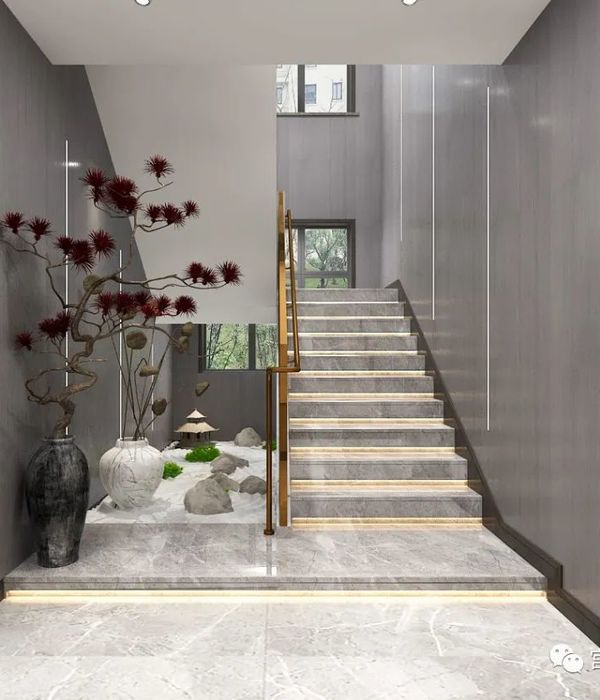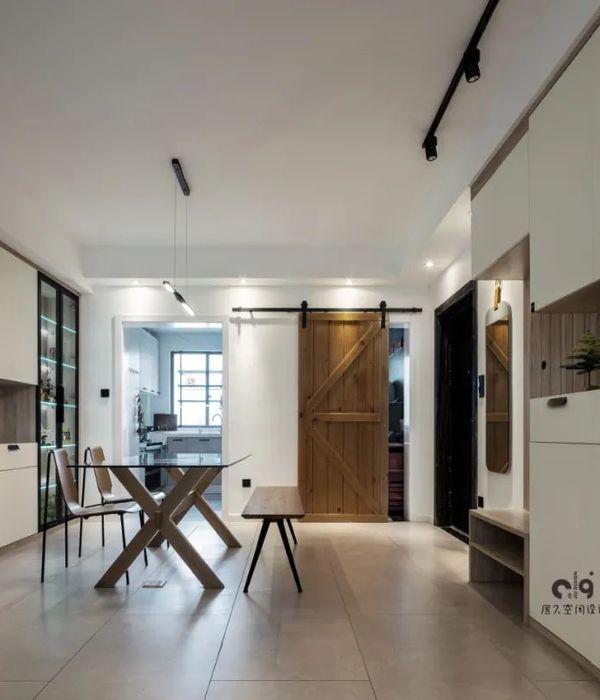- 项目名称:广东广州莲塘古村保护与改造设计
- 项目地点:广州市黄埔区九龙镇
- 场地面积:55000 平方米
- 设计单位:棕榈设计有限公司
- 总设计师:张文英
- 项目负责:肖星军
在莲塘村的西门楼里,安坐着一群六十至九十岁不等的老伯,他们吸着纸烟静坐,目光追随偶有的门外行者。他们劳作于斯,守望于斯,见证了莲塘村绵延至今的点滴时刻。你可以和他们聊天,追寻当地的历史,也可以观看地方传统特色手工艺,又或者亲自动手,体验采莲乐趣。
In the west gatehouse of Liantang Village, a group of men between the ages of 60 and 90 sat down with cigarettes and watched passersby outside. They were right here and worked here, watching time flies. You can chat with them, search for history, appreciate traditional local crafts, or try yourselves to enjoy the fun of picking lotus.
▼莲塘村改造前现状,liantang village before renovation
缘起
Origin
萝岗区莲塘村建村距今已有700 多年历史,是华南地区第一大姓陈氏族人从珠玑巷南迁的居住村落,村内历史建筑众多,现仍保留有村头的镇南楼,村尾的镇北楼(两座楼为防盗之用,均被毁,仅留地基);村东有陈彦约墓,陈彦约是宋朝陈姓入粤始祖之一;村中建有时四陈公祠、鸿佑家塾、罗祖家塾、小堂家塾、季昌书室和多间古商铺等清代建筑;古巷五条,分别为:荣华里、人和里、中和里、平安里、长安里,极具岭南风格等历史性建筑及古榕树和近2万平方米的古村落。
Liantang Village in Luogang District has a long history of more than 700 years. It is the residential village of Chen (the most popular surname in South China)who was removed from Zhuji Lane. Many historical buildings are still in the village, such as Zhennan Building at the entrance of the village, Zhenbei Building at the end of the village (both buildings are used for theft prevention, both destroyed, only foundations left), Chen Yan’s tomb at the east, who was one of the first ancestor of Chen moved to Guangdong in the Song Dynasty; Shisi Chen Ancestral Hall, Hongyou Family School, Luozu Family School, Xiaotang Family School, Jichang Bookstore and several ancient shops built in the Qing Dynasty; 5 ancient lanes, Ronghuali, Renheli, Zhongheli, Ping’anli, Chang’anli, historical buildings with outstanding Lingnan style, an ancient banyan tree and an ancient village of nearly 20,000 square meters.
▼村内历史建筑,historical buildings in the village
其中“时四陈公祠”建于清代光绪年间,其历史与著名的广州陈家祠相当。“在文化的苍茫浩淼前,人不过是棋子;这庭院的地这庭院的天,就是历史和时间对弈的棋盘。”站在祠堂的庭院里,感受几百年的风雨沧桑。村民们还会在祠堂广场搭建戏台,组织民俗展演、巡游和节庆等活动。
Shisi Chen Ancestral Hall was built in the Qing Dynasty during the reign of Emperor Guangxu, with history comparable to the famous Chen Clan Academy, Guangzhou. “In a vast culture arena, people are just chesses; the earth and sky of the courtyard are the chessboard of history and time. ” Standing in the courtyard of the ancestral hall, you can feel the vicissitudes of hundreds of years. Villagers can also set up a stage in the ancestral hall, organize various activities such as folklore performances, cruises and festivals.
▼祠堂广场,the ancestral hall square
莲塘村绕玄武山而建,负阴抱阳,采用梳式布局。祠堂背靠玄武山,前设水塘。玄武山与案山相连成通廊轴线,前有左辅右弼相依。莲塘人几百年来从不随意砍伐他们的“靠山”——玄武山的一草一木;不盖房侵占祠堂门口的空地;不填环绕村庄的莲花塘;不在以祠堂为轴线的方向上盖房子遮挡祠堂……这既是对土地发自内心的尊重,也是对环境中山水草木的敬畏。
Liantang Village was built around Xuanwu Mountain in comb style layout, with negative yin and positive yang. The ancestral hall sets back against Xuanwu Mountain, with a pond in front. The Xuanwu Mountain is connected with Anshan Mountain as the axis of the corridor, with the left and right sides facing each other. Liantang villagers have never arbitrarily cut down their “backer” – grass and trees of Xuanwu Mountain for hundreds of years; the open space at the entrance of the ancestral hall has not been occupied by houses; the lotus pond surrounding the village has not been filled; houses have not been built in the direction of the axis of the ancestral hall… It shows sincerely respect for the land and awe of the landscape.
▼时四陈公祠,Shisi Chen Ancestral Hall
传统风貌和当代生活的多元化产物
Diversified Village Combined with Traditional Features and Contemporary Lifestyle
鉴于现状村落环境渐呈颓势,本项目坚持“保护性开发,地域性创新”的理念,即在改造中,优先注重保护莲塘村具有历史特色的村落环境和风景良好的自然空间格局。修旧如旧的老宅是对历史的致敬,原汁原味的乡村生活是对传统的保留。同时,在挖掘和继承地域乡土文化中,以现代的设计语汇和审美要求,去解读乡土,创造符合传统又有局部创新的莲塘村新景观。
In view of the gradual decline of the current village environment, the project adheres to the concept of “protective development, regional innovation”, that is, the priority of reconstruction is to protect the environment featuring historical characteristics and natural spatial layout with beautiful sceneries. Old houses reconstructed as the old are a tribute to the history, and the original country life is the preservation of tradition. Meanwhile, in the process of exploring and inheriting local cultures, we use modern design languages and aesthetic needs to interpret local cultures, creating a new landscape with tradition and partial innovations.
▼环绕村庄的莲花塘, the lotus pond surrounding the village
▼莲花塘周边景观概览,the landscape around the lotus pond
在具体的设计手法上,遵从以下原则,即乡土风情、传统元素、现代手法、手工痕迹。在设计内容上,弘扬传统民俗文化,搭建戏台和祠堂广场,以便组织民俗展演、巡游和节庆等活动,通过深入挖掘文化内涵如长老会等,突出古村的文化特性,展示具有地方传统特色手工艺、荷塘采摘、节庆风俗,书院祠堂等的原真性文化,为古村的旅游增添人文气息。在工程设计上,本项目在旧材料回收利用,以及石拱桥垒砌构造,还有荷塘水质净化措施等方面,进行了研究创新,实现乡村生活在优质的自然环境中大放异彩。
For design technique, it obeys following principles: local customs, traditional elements, modern techniques and handicraft techniques. For design content, it promotes traditional cultures and sets up stage in the ancestral hall so as to organize activities such as folklore performances, cruises and festivals; highlights local traditional characteristics of the village by deeply exploring cultural connotations to add a humanistic atmosphere to the village, such as handicrafts, lotus picking, festival customs, ancestral hall. For engineering design, it makes research and innovation on recycling and utilization of old materials, stone arch bridge piling and water purification measures of lotus ponds to achieve brilliant rural life in a high-quality natural environment.
▼亲水平台,platform by the side of the pond
▼通向岸边的阶梯,steps to the shore
▼墙体砖砌细部,wall masonary details
▼连接莲塘两侧的石桥,stone bridge connecting both side of the pond
▼大榕树下的石桥,stone bridge under the big banyan tree
▼桥洞细部,details
传统岭南水乡特色的保留
The Preservation of Characteristics of Traditional Lingnan Water Village
最大程度保留莲塘村的建筑原貌,作适当修复;增建古戏台、洗衣台、青砖毛石矮墙,重现古村的生活场景;以现代石材干挂技术,重建具岭南特色的古石桥;发掘利用原有的砖瓦草木、旗杆夹石、功名碑、石钵石凳,使其焕发新的生命力;植被丰富,遍植果树、岭南草木花卉,满池莲花香气袭人;同时保留见证莲塘村建村历史的古榕树,更深远的意义则是我们对于创造古村故事的考虑。
The original structure of Liantang Village has been preserved to the maximum extent so as to be restored appropriately; ancient stage, laundry table, blue brick and stone low walls have been built to recall the scene of the ancient village; ancient stone bridge with Lingnan characteristics has been built with modern stone hanging technology; original bricks, tiles, grasses, trees, flagpoles, stone monuments, stone slabs and stone benches have been used to make them vigorous; trees, grasses and flowers have been planted, a pond of lotuses are aromas; while an ancient banyan tree has been preserved to witness the history of the village. The most profound is how to tell the story of the village.
▼修复后的祠堂广场,the ancestral hall square after renovation
莲塘古村具有良好的自然风水格局,设计通过深入挖掘自然资源及场所精神,保护珍贵的村落山水格局,为村民提供文化发生的舞台,从而促进乡村自然文化遗产的保护与开发; 为游客提供乡村生活体验与自然风景体验游线,能有效地传达传统文化与自然资源的保护意义,共建发展与保护可以也必须协调进行的社会集体意识。
The village features good natural layout of Feng Shui. The design explores natural resources and spirits of space, protects precious landscape of the village, provides villagers with a stage to promote the protection and development of the natural and cultural rural heritage; enables tourists to enjoy rural life and natural scenery that can effectively convey the significance of protecting traditional culture and natural resources; and builds a social collective consciousness that can be coordinated and developed.
▼在小水池处远望祠堂广场,looking far from the pool to the ancestral hall square after renovation
一砖一瓦,人间烟火:一花一草,莲塘美景。漫步古村,蝴蝶隐现花丛,龙眼果满枝头,或有阳光温和,淡淡粉饰着古老的麻石小巷;或遇微雨招唤,点点滴滴弦动乡间静美。这就是故事发生的地方。
Bricks and tiles, earthly life: flowers and grass, beautiful lotus pond. Wandering in the village, you can see butterflies looming in the flowers, branches full of longan fruits, or soft sunshine lightly decorated with ancient masonry alleys; or occasionally raining in the countryside. This is where the story takes place.
▼在祠堂广场前追赶、玩耍的小朋友们,children chasing and playing in front of ancestral hall square
▼两个小女孩蹲在小水池旁捉虫子,Two little girls kneeling beside the small pool
广州市萝岗区莲塘村名村环境改造工程,是贯彻广州市“美丽乡村”建设(14个市级示范点之一)和“三旧”改造的首批示范点。该项目完成后,获得了社会各界的一致好评,当地村民一致认可,省市领导在多次视察参观后给予了较高评价。先后获“广东省第二届岭南特色规划与建筑设计银奖”、“艾景奖2014年度十佳景观设计奖·城市规划设计”、“2014美居奖全国最美旅游度假区第一名”等奖项。
The reconstruction project of the famous Liantang village, Luogang District, Guangzhou is the first demonstration site to implement the construction of “Beautiful Village” (one of the 14 municipal demonstration sites) and reconstruction of the “Three Olds”. After completed, it has won praises from all walks of life, recognition by local villagers, high evaluations by provincial and municipal leaders after observations. It has won “Silver Award for the 2nd Planning and Architectural Design with Lingnan Characteristics in Guangdong “, ” Idea-King Award for Annual Top 10 Landscape Design Awards 2014 · Urban Planning and Design” and “1st Place of Meiju Prize – Resort Design”.
▼总平面图,site plan
项目信息
项目名称:广东广州莲塘古村保护与改造设计
项目地点:广州市黄埔区九龙镇
场地面积:55000 m2
设计单位:棕榈设计有限公司
总设计师:张文英
项目负责:肖星军
技术负责:黄文烨
主要参与人员:苏春燕、郑益毅、何铭谦、梁恺峰、冯劲谊、梁丽玲、陈乐乐
Project imformation
Project: The Protection and Reconstruction Planning Design for Liantang Village, Guangzhou
Location: Jiulong Town, Huangpu District, Guangzhou, Guangdong
Site Area: 55000 m2
Design: Palm Design Co., Ltd.
Chief Designer: Wenying Zhang
Design Director: Xingjun Xiao
Technical Director: Wenye Huang
Design Team: Chunyan Su, Yiyi Zheng, Mingqian He, Kaifeng Liang, Jinyi Feng, Liling Liang, Lele Chen
{{item.text_origin}}





